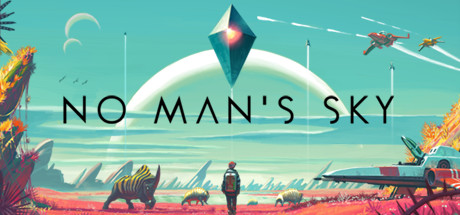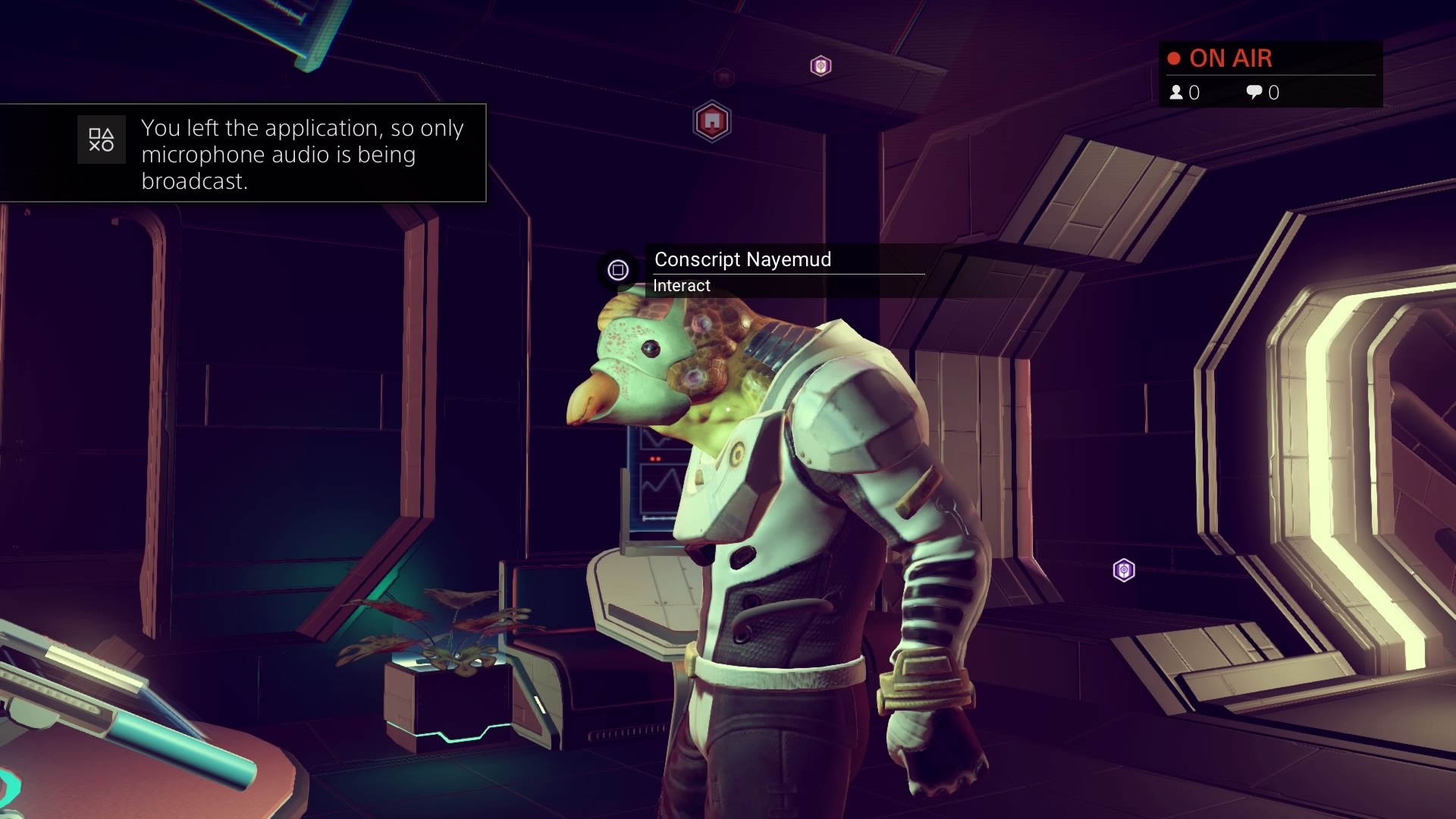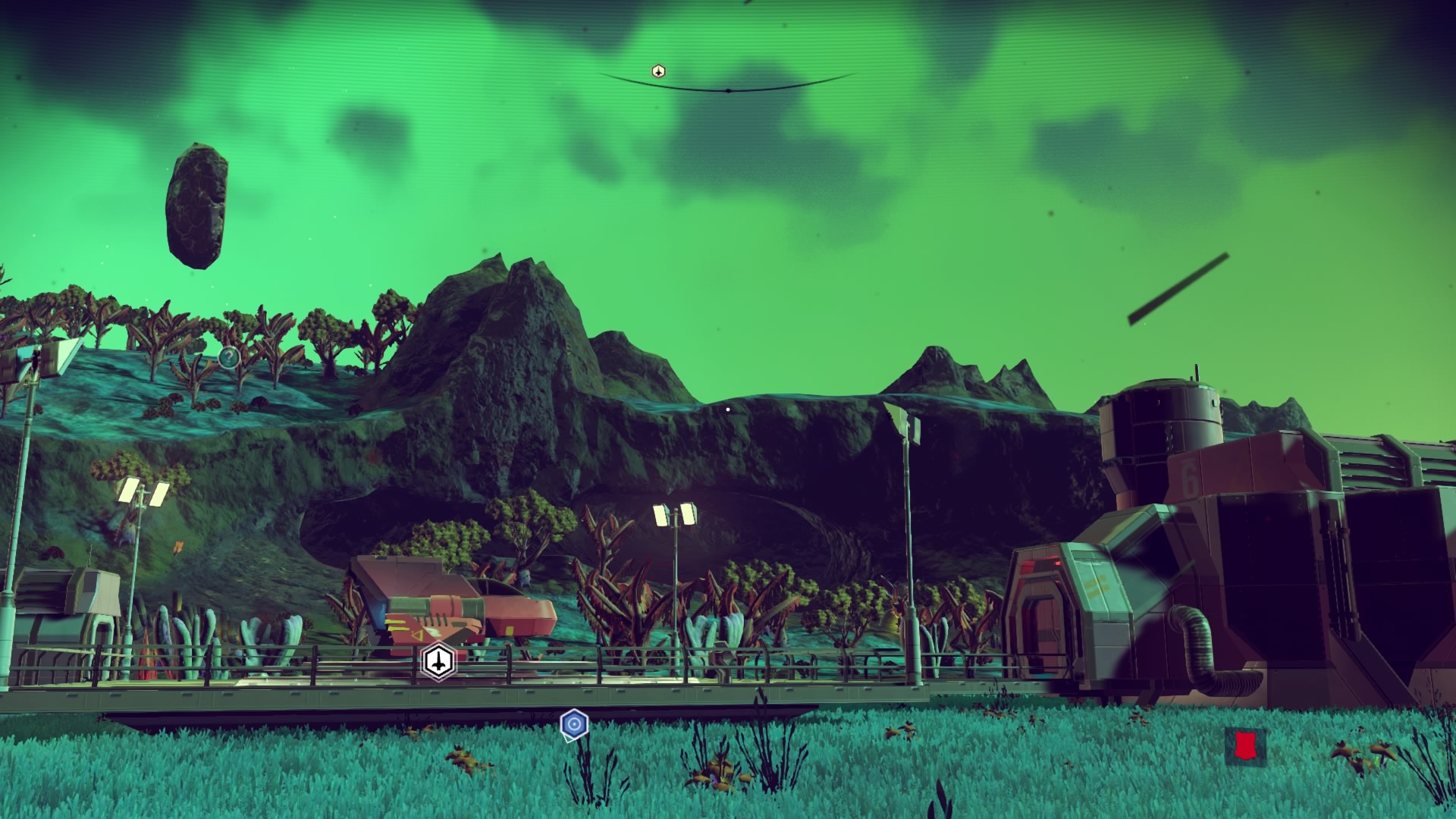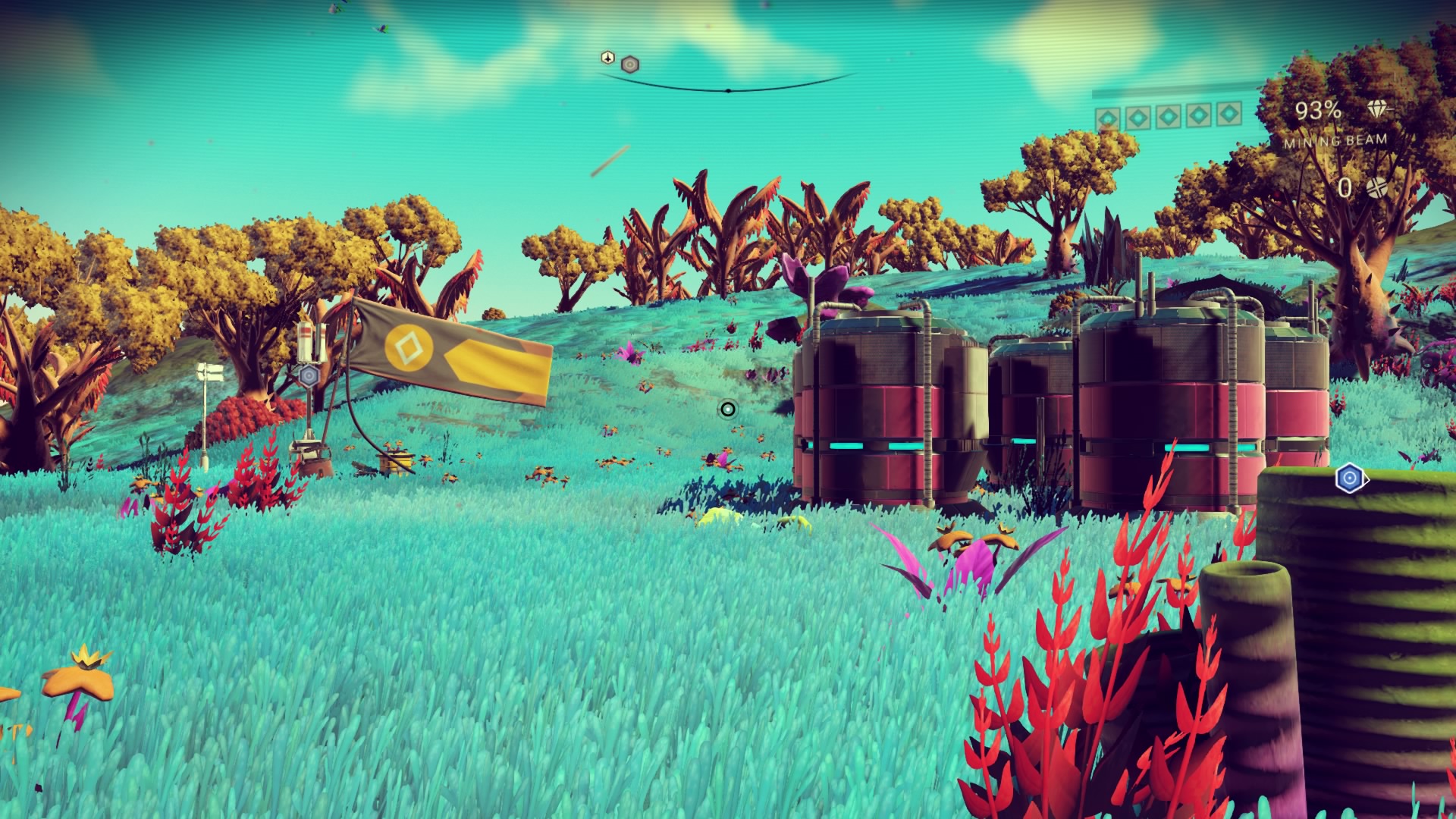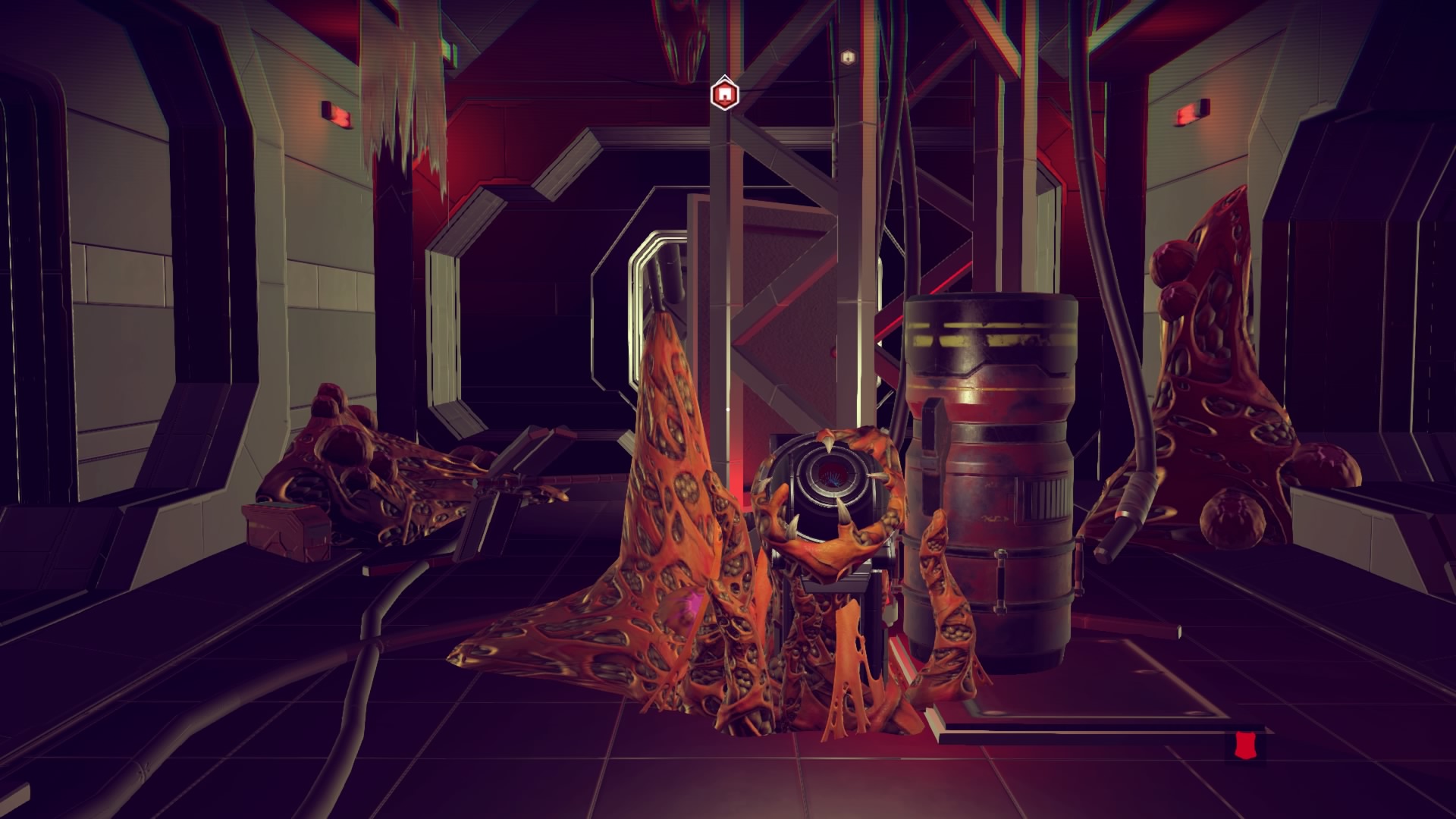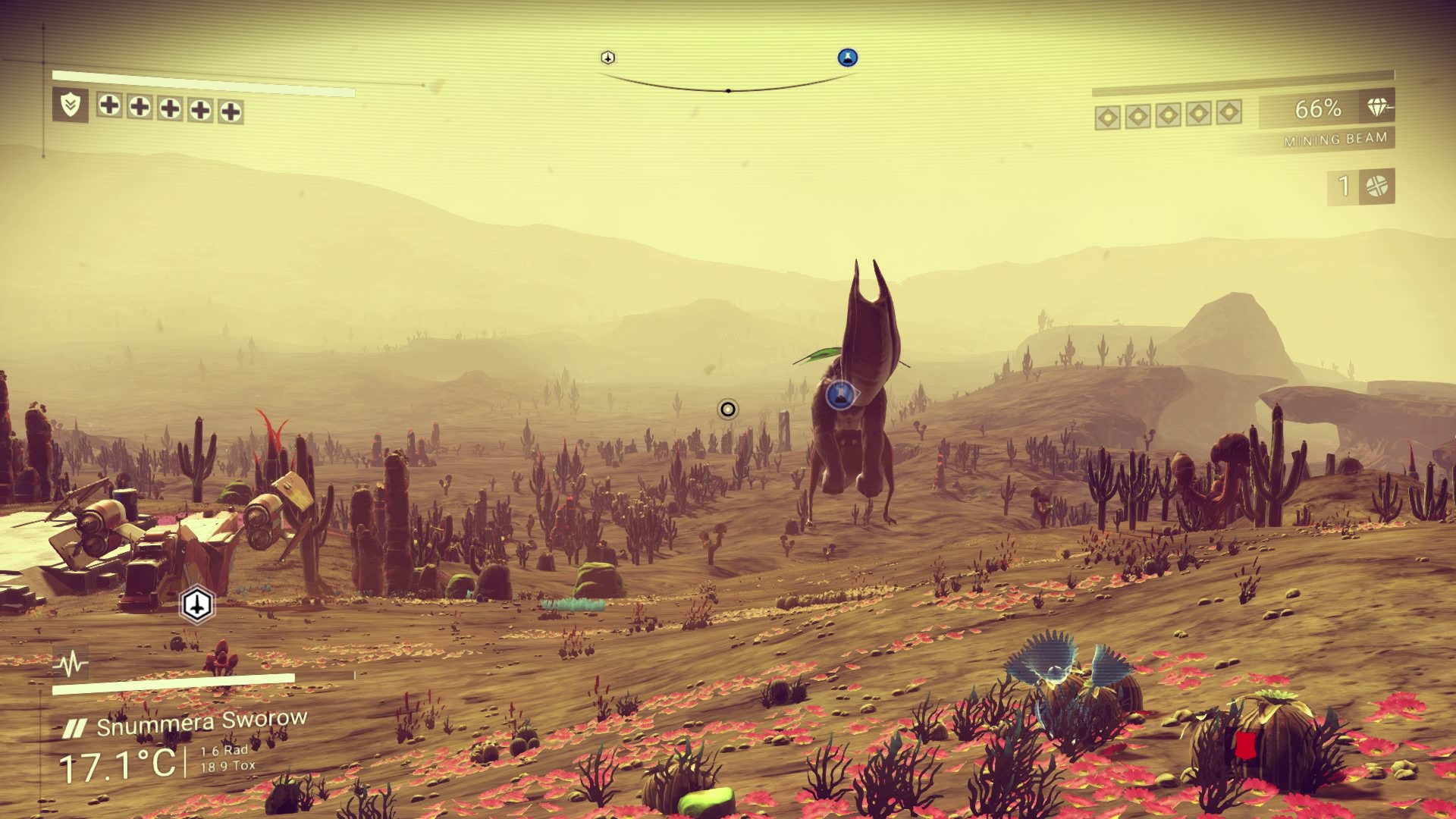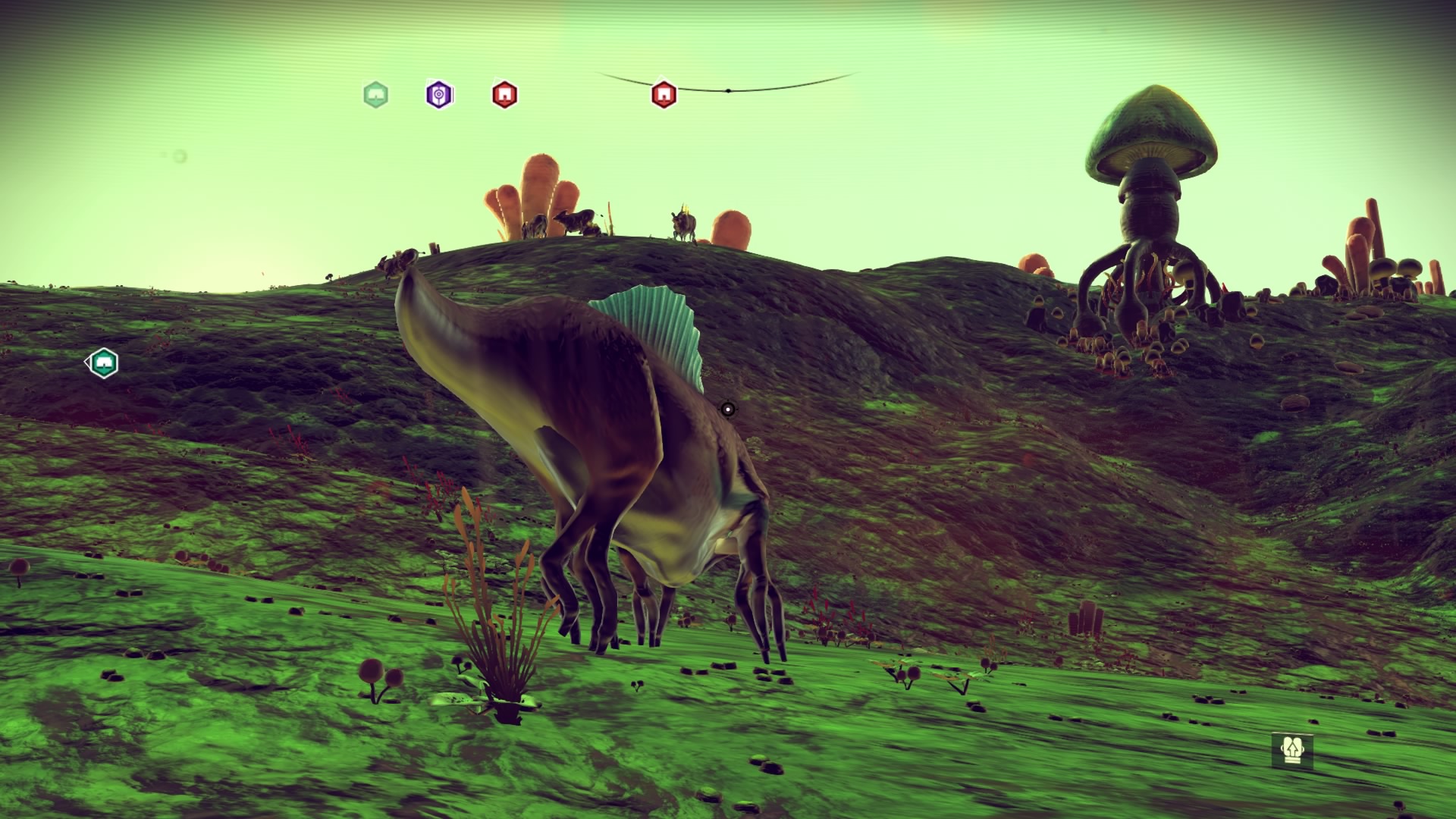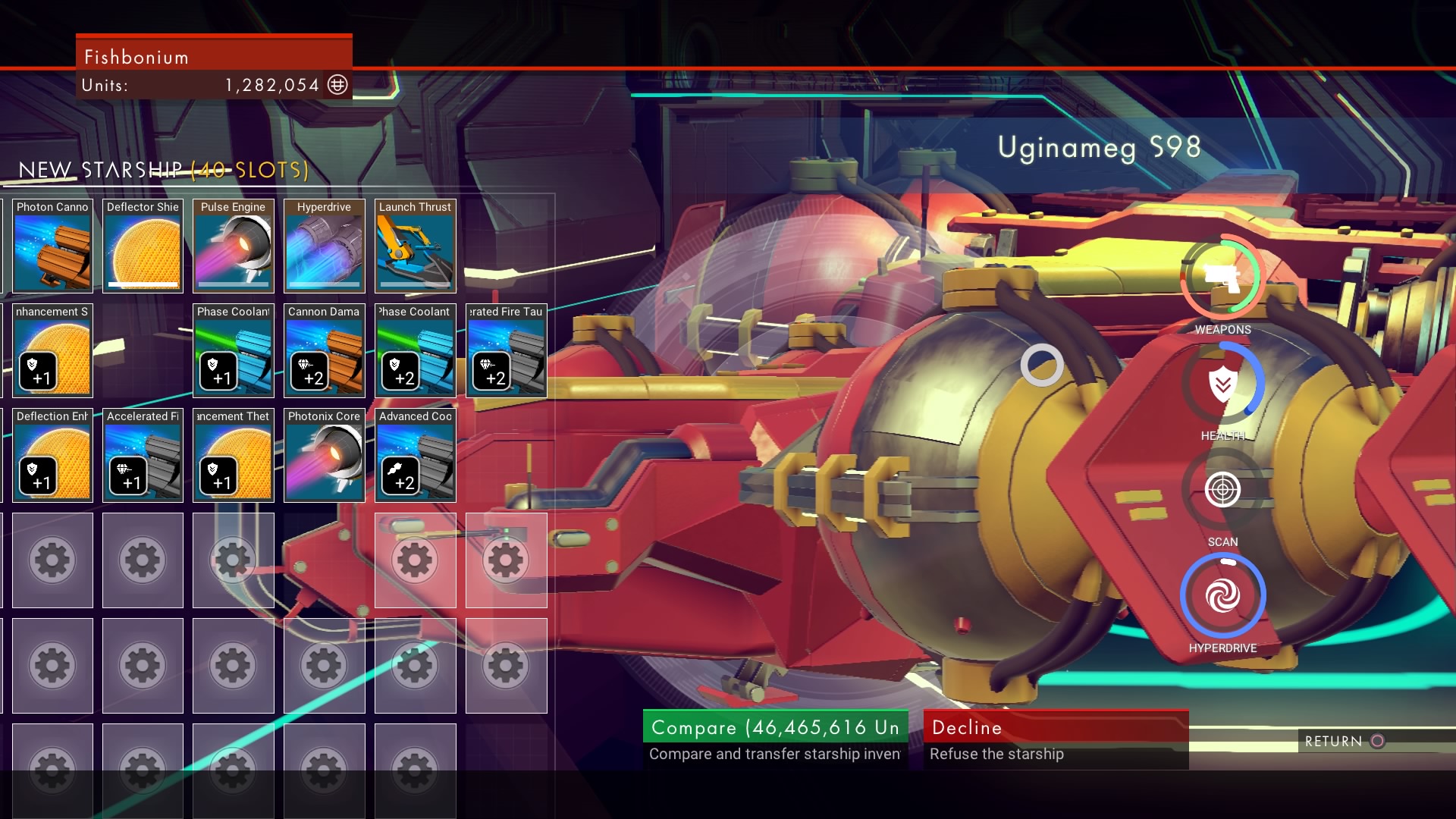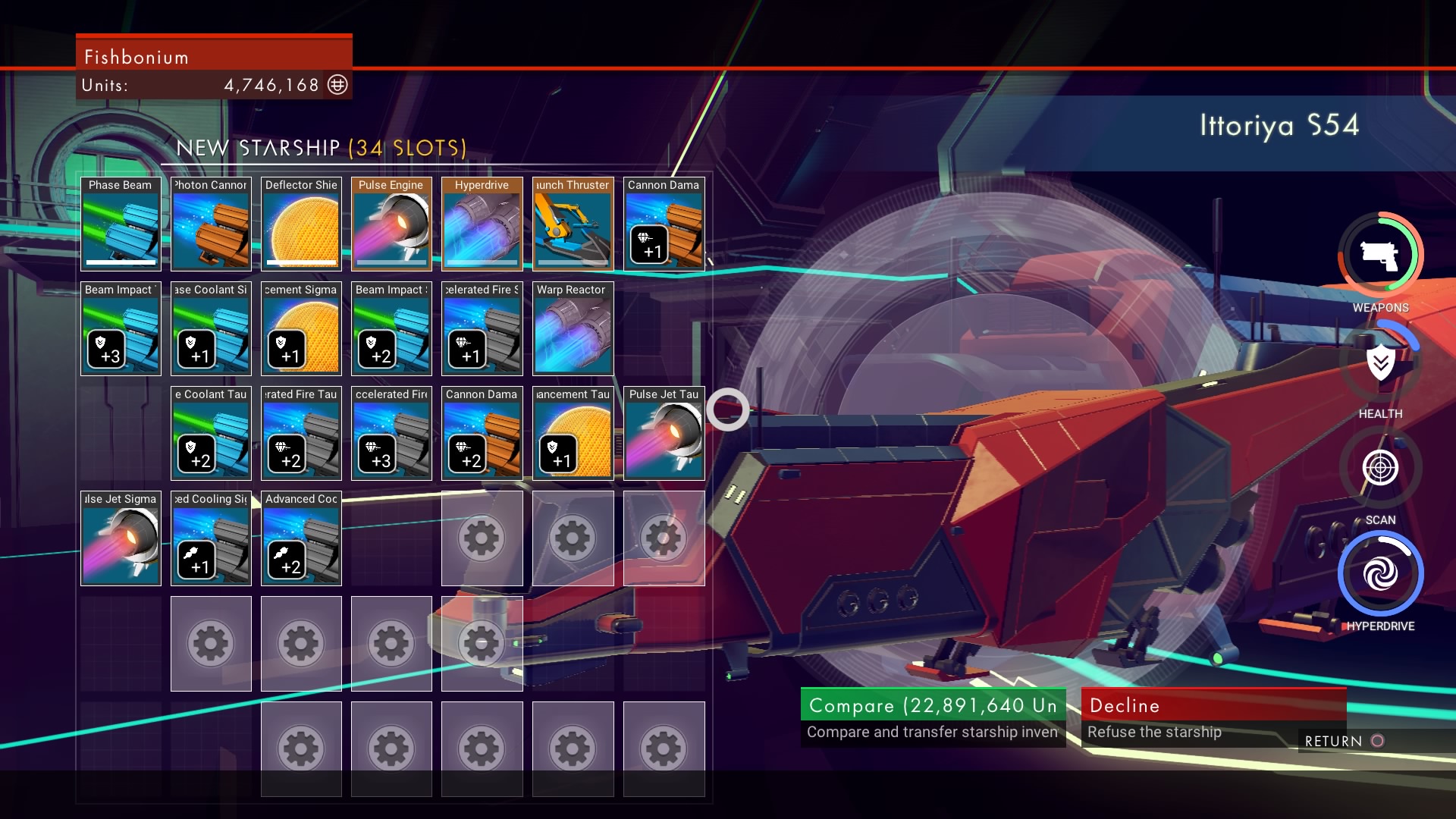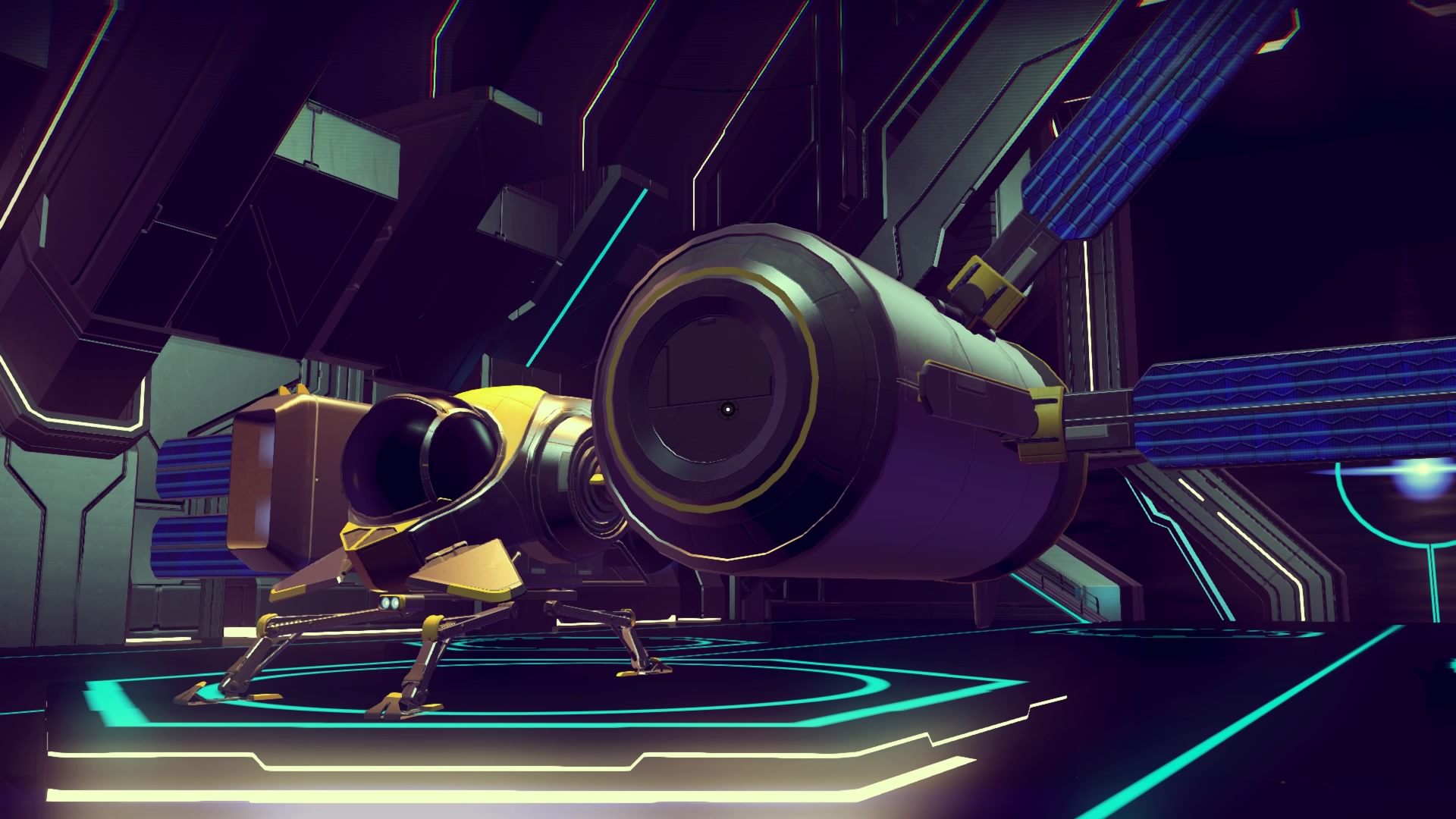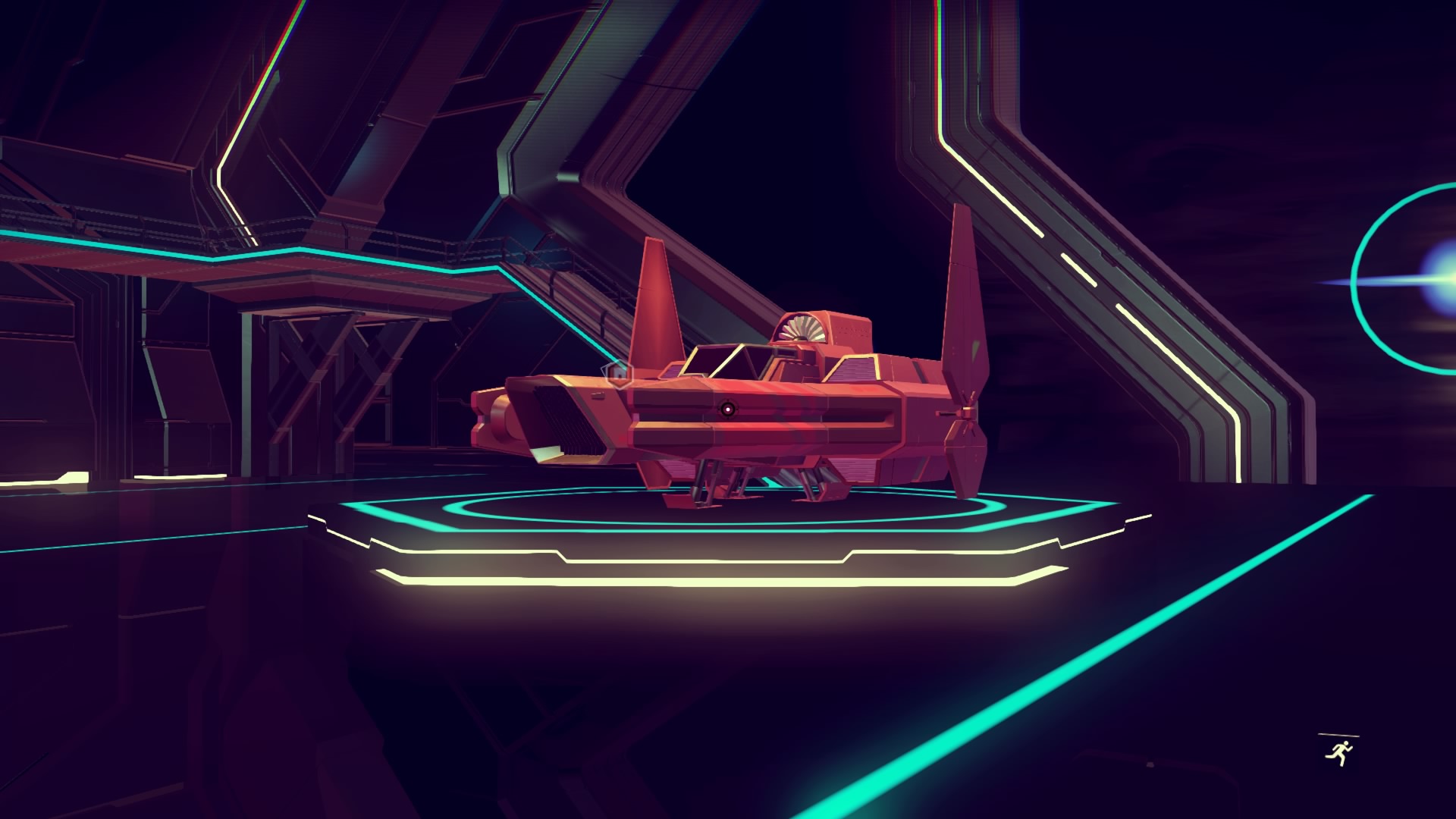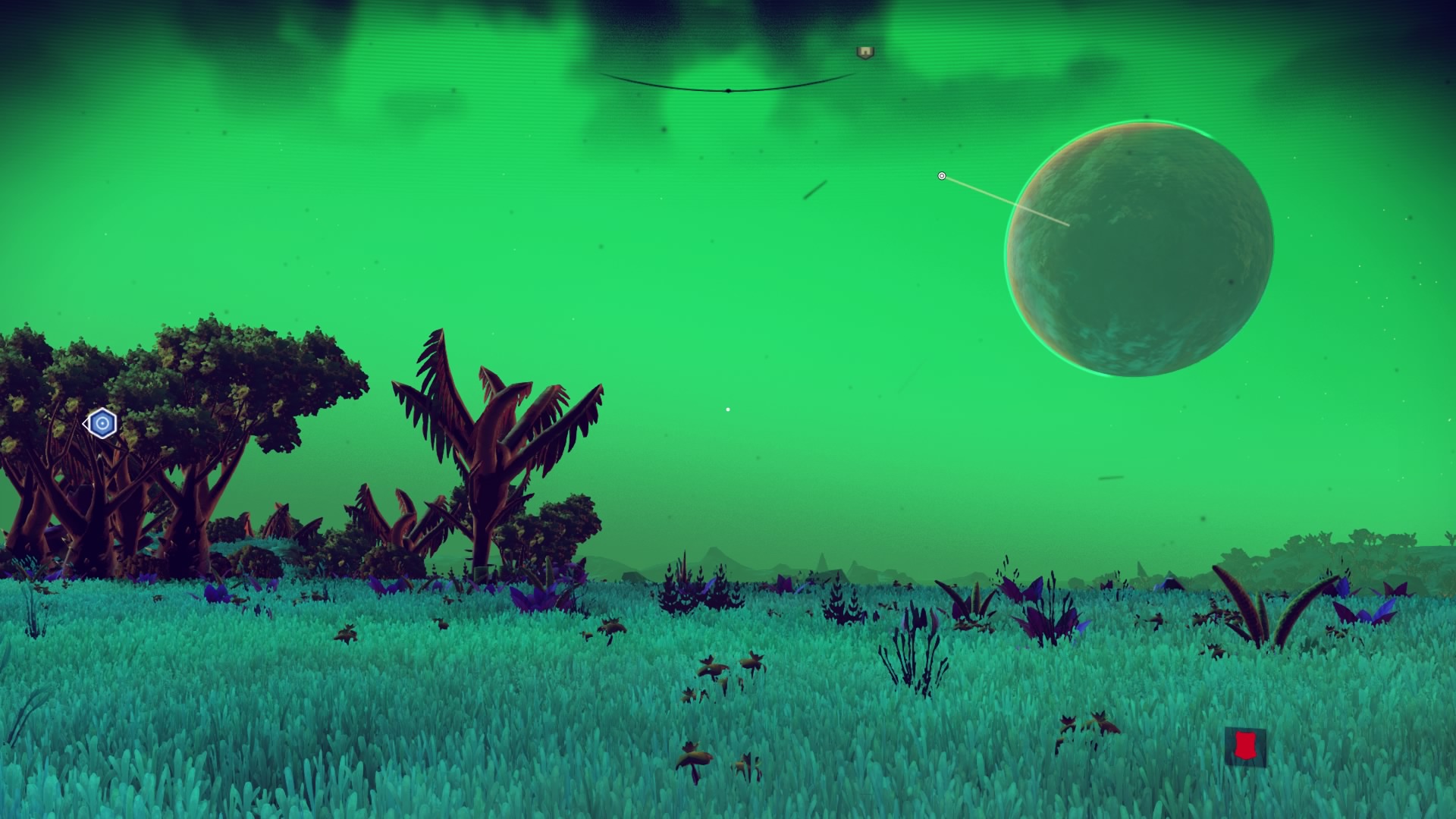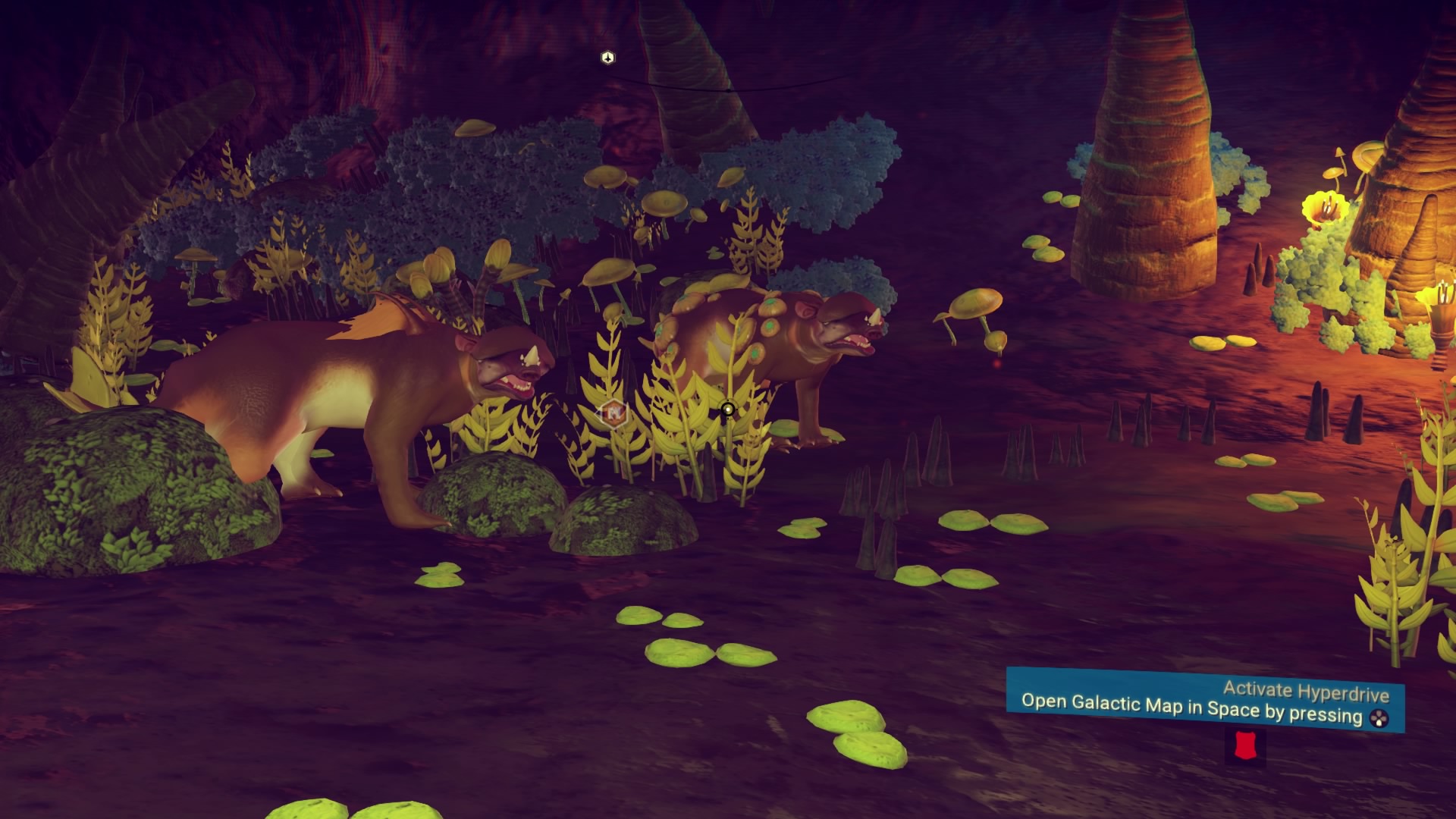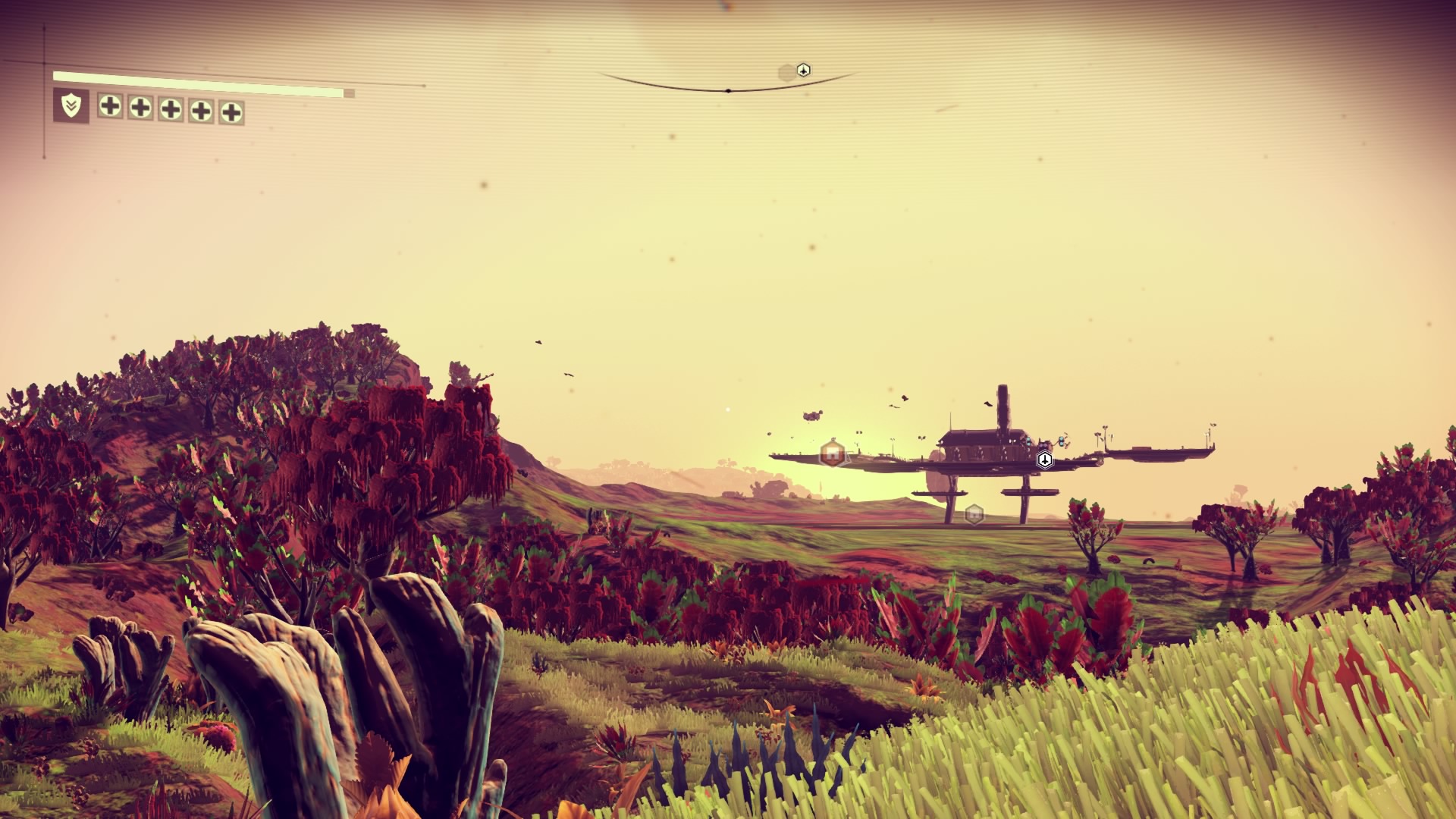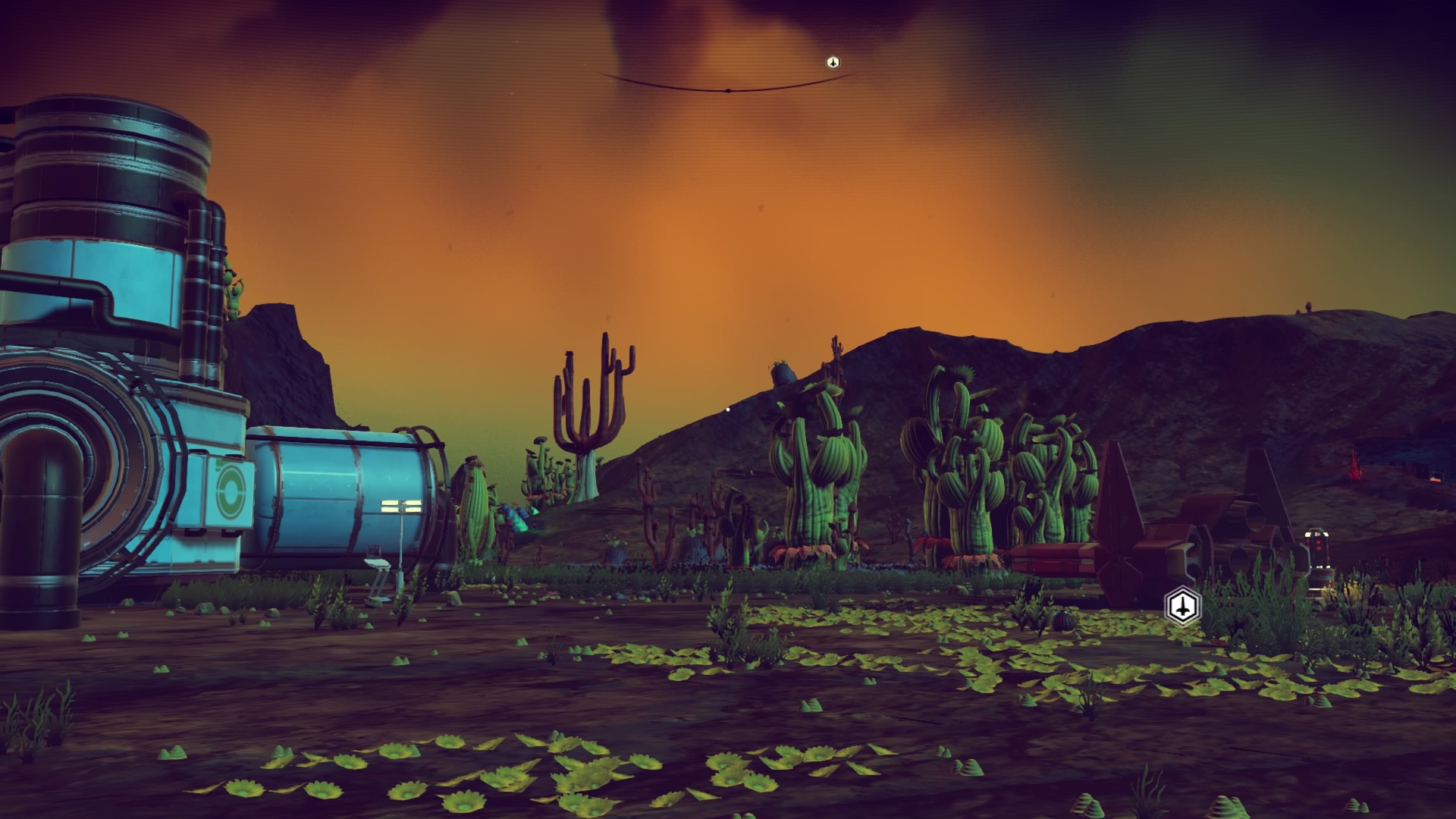No Man's Sky: Some Man's Dream
/No Man’s Sky is both a great game and a horrible game dependent on expectation and desire. The game has a unique feature; its entire universe, including planets, wildlife, plants, spaceships, and sentient species, are designed by several impressive algorithms. The concept itself is astounding. At least that was the thought rushing at me in the game’s early hours. Only one star system in, I felt the experience captured the spirit of the intrepid voyager; every pulse drive to a planet was exhilarating, every landing exciting, every animal a wonder. Then I warped to the next system, wide-eyed and hopeful. Then to the next, and the next, and the next. A rhythm set in, and though the wonder never completely faded, the activities surrounding it became somewhat rote. For some, NMS will deliver well enough, for others, it will deliver not much of anything.
No Man’s Sky begins with an astounding amount of potential. Players mount their journey marooned on a planet, their ship damaged. Using the multi-tool--a gun-like apparatus that can be switched between mining and combat modes--players gather materials like oxides from rocks and isotopes from flora and fauna, which can then be used to repair ship components. After fixing the ship, players are free to explore their first planet in earnest. In this introductory hour, some specific and immediate goals are given to the player, like finding the schematic for and building a pulse drive that will allow the ship to leave the atmosphere and “jump” to another planet, moon, starbase, or other location within a system. This is the only time a player’s time will be directed so specifically; the rest of the time, you do what you want.
With the ship fixed and a star system open for exploration, it’s easy to find something to do. Aliens inhabit colonial bases and trade centers, offering a small language-based puzzle for various rewards. Each of the three species has their own language to decipher, which figures heavily on solving these puzzles and knowing what any particular alien wants. Words in each language are discovered in alien ruins, monoliths, and from aliens themselves. Monoliths and ruins also relate each species’ history or offer a reward or punishment through another language-based puzzle. Animals, plants, and minerals can be scanned for small payments, and scanning all the species on a given planet nets players a large sum of credits, the game’s currency. This is used to buy materials, trade for a new ship at starbases or planetside outposts, or expand spacesuit inventory at drop-pods. If you're feeling brazen, you can attack resource stockpiles on planets or massive cargo ships in space to steal their resources, but beware counterattack by the Sentinels, the universe's enigmatic robotic-sentient police. Once you're carrying all that precious cargo, space pirates might warp in to attack in their own ships, or might attack those aforementioned cargo ships en masse, triggering a distress call asking for your help. So at the outset things can be pretty overwhelming, especially with nothing upgraded or built yet.
Players find schematics for additions to the spacesuit, multi-tool, and ship at trade centers, mysterious derelict settlements, Sentinel-protected manufacturing plants, and shelters. These additions either add functionality, such as making the multi-tool combat mode fire like a shotgun, or improve the stats of various devices. A layer of customization lies here, though building these additions takes up valuable inventory space, so it can be tough deciding between carrying more materials or having a shield against one of the various extreme conditions on planets. Finally building that new mod that adds a huge amount of damage to the multi-tool feels great, though it takes a lot of work if rare materials are required.
Building better mods is rewarding as you see your ship and equipment become more effective, but fighting isn't very interesting or nuanced. Most combat in NMS is against the Sentinels, who appear in larger force the bigger the crime and the more one resists. Combat is as simple as pointing and shooting, a very limited selection of mods changing firing modes and a grenade launcher the only bit of variation available. Using cover, the jetpack, and ensuring that your weapon and shields are buffed up enough is all one needs to master any planet. Space combat is even simpler, the ship’s mining laser and automatic cannon the only tools of destruction. Overzealous, oppressive peacekeepers are not the only threats, however.
Planets vary not only in appearance and life, but also in their weather. Some have dangerously cold nights or scorching days, toxic rains, or rampant radioactivity. The suit has an environmental shield that slowly drains, but these effects can be mitigated by finding shelter in buildings or caves and by building condition-specific shield modules in the suit. Some planets are impossible to explore on foot for very long without these modules, and like the multi-tool, engines, and other various devices, they must be “re-fueled” with material. There's a lot to keep track of, a lot to build and customize, and a lot to do, but I am unconvinced NMS is one of those games that are "more than just the sum of its parts."
The truth is, nothing you seem to do makes a difference. Nothing changes from one warp to another. Spare events like space pirate attacks and black holes liven up the action and wonder, and attacking huge capital ships for a prolonged time out in space can be downright suicidal, but for the most part gameplay doesn’t change from one star-system to the next. This is a problem for many because the few motivations to continue—find the center of the universe, discover each species’ histories, or figure out what in the world is going on with the Atlas—is not going to be enough for most. Repetition sets in. Worse, the only long-term sense of challenge comes from the insane amount of credits required to buy the better, high-end ships.
What we end up with is a humongous universe with a handful of tasks to do but no real center or motivator to them. It’s never even quite clear why reaching the center of the universe is important, though I haven’t plumbed that depth quite yet and am still curious as to what I’ll find. So herein lies the problem: I’ve maxed out my suit inventory, built some of the best mods, and now, with so far to go, I feel there’s no room for growth, and growth—that next level, that better piece of equipment, that one awesome ship—has been the chief motivators for my continued play. I still haven’t gotten that ship, but making money just isn’t fun enough.
No Man’s Sky is a great concept with some superb technology and a lot of spirit, but the design and narrative just aren’t motivating or deep enough to keep most players invested. It's a technological marvel and a good game, but it's lack of depth amidst so much breadth keeps it from being great.
Brew: Like an AMF; blew your mind that one time, but every time you have another you like it less and less.


